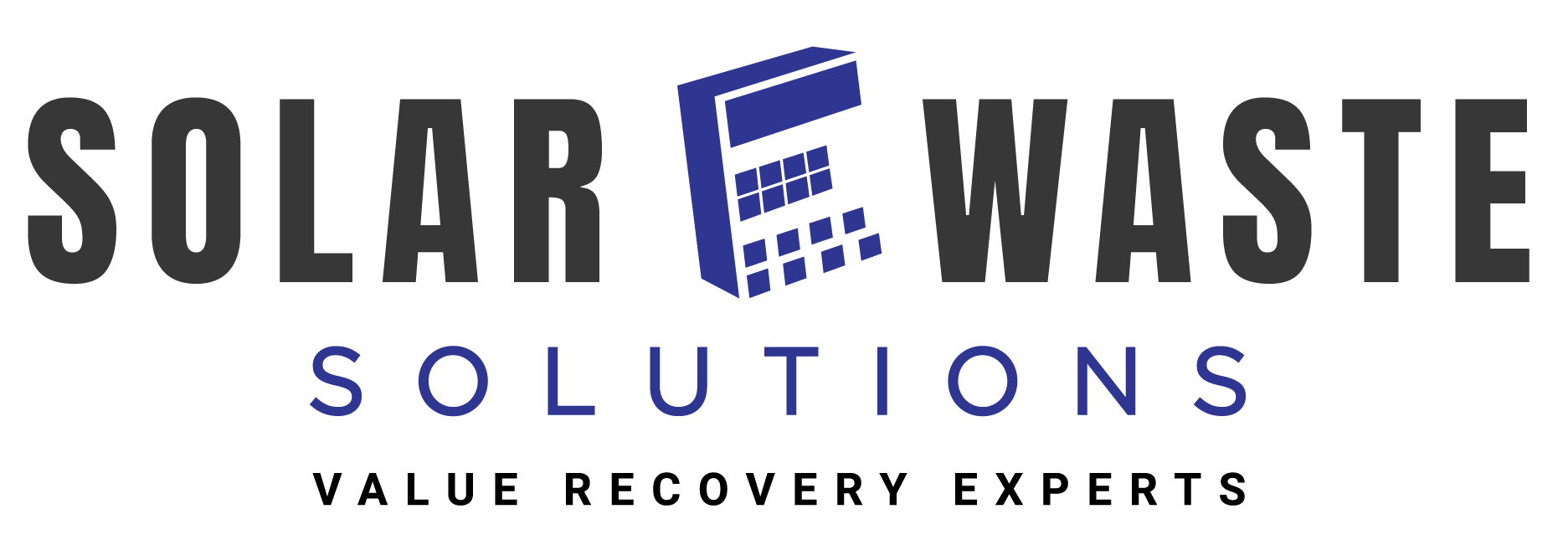Solar PV Recycling & Reuse: What Documents You Need to Request
Going beyond a certificate of recycling, here is a list of other verifiable information to request from your large-scale solar PV recycling facility
Without clear records and in the worst-case scenarios, reused panels can be illegally dumped, mishandled, or shipped overseas, disproportionately affecting vulnerable communities that lack proper recycling infrastructure. Transparent record-keeping enables organizations to demonstrate legal compliance with local, federal, and international regulations, protect against liabilities such as fines or environmental costs, and build stakeholder trust by showing a commitment to responsible solar waste management for reused panels. We have a responsibility to source the best panels for reuse with a legitimate receiving partner and program that gives panels a second use before recycling.
What is the essential documentation for solar panel Reuse & Recycling management?
Testing documentation for reuse
For panels intended for reuse, functionality and quality must be ensured through thorough testing. At a minimum, organizations should perform electroluminescence (EL) testing or flash testing to confirm performance. Ideally, at least one panel per pallet should be tested to provide objective evidence. Documentation must include handling and storage practices to prove that panels were transported and stored without damage. Partnering with certified nonprofits or organizations specializing in panel repair ensures reused panels meet safety and performance standards, preventing unregulated distribution in markets lacking oversight.
Vendor certification and audits
Collaborating with credible vendors is critical to preventing improper disposal or reuse. Vendors should hold certifications under standards such as R2 (Responsible Recycling) or e-Stewards, which verify ethical recycling and reuse practices. Regular audits should be conducted to assess vendor compliance with regulations, and records should include certificates of recycling, disposal manifests, or reuse program details. This ensures transparency and accountability throughout the panel management process.
Export and transport documentation
Organizations must comply with international waste regulations, such as the Basel Convention for panels transported overseas. Maintaining shipping manifests and customs declarations is essential to trace the transportation route. Documentation should prove adherence to import/export requirements, ensuring legality from initial truck transport to overseas shipping. Proper packaging for overseas shipments must also be documented, including secure stacking and protective measures to prevent damage during transit.
Hazardous waste manifests
For panels classified as hazardous waste, complete hazardous waste manifests per Environmental Protection Agency (EPA) regulations and state-specific requirements. These records should detail the final disposal facility, ensuring panels are sent to certified treatment, storage, and disposal facilities (TSDFs). Retaining manifests for the required retention period (usually three years) is vital for compliance and audit purposes.
Storage and handling logs
Improper storage can result in panel breakage, contamination, or environmental damage. Logs detailing storage conditions should be maintained, including temperature, humidity control, and protective measures. Photos or videos documenting compliance with best practices provide additional evidence and support during audits or inspections.
Insurance records
Given the potential risks associated with PV management, organizations should maintain comprehensive insurance policies covering environmental liabilities, transportation risks, and disposal site exposures. Endorsements or riders specific to panel handling and management should also be included to mitigate financial risks.
Best practices for managing documentation
Centralized Record Management
Implementing a cloud-based system for organizing and accessing documentation streamlines record-keeping and ensures real-time updates. This approach simplifies audits and ensures information is readily available when needed.
Regular Documentation Updates
As panels move through the processes of storage, testing, transport, and disposal or reuse, records must be updated at each stage. Outdated documentation can compromise compliance and hinder effective oversight.
Collaborate with Certified Partners
Having a solid relationship with a vetted partner that shares documentation on a customer portal can help you keep necessary documentation in order and accessible at any time. Establish partnerships with reputable recycling and reuse organizations. These collaborations help maintain a transparent supply chain while supporting legitimate reuse programs.
Staff Training
Employees should be trained on the importance of accurate record-keeping and compliance with regulations. Proper training helps avoid costly errors or oversights and ensures everyone understands their role in managing panels responsibly.
The Path Forward
Proper documentation is more than a regulatory necessity—it is a commitment to transparency, sustainability, and social responsibility. By maintaining thorough records, organizations can prevent improper panel disposal, support ethical reuse, and contribute to a responsible solar industry.
In an ideal system, testing and tracking would accompany every panel, ensuring objective evidence of performance and compliance. This would prevent the exploitation of vulnerable regions by eliminating the risk of illegal dumping or unregulated reuse. By prioritizing documentation and partnering with reputable vendors, the solar industry can pave the way for a circular economy that protects both the environment and communities worldwide.
Resources
https://www.epa.gov/hw/solar-panel-frequent-questions
https://www.epa.gov/hw/solar-panel-recycling
https://www.basel.int/Portals/4/download.aspx?d=UNEP-CHW-OEWG.14-INF-9-Rev.1.English.pdf
https://cfpub.epa.gov/si/si_public_record_Report.cfm?Lab=CESER&dirEntryId=359251
https://www.nrel.gov/docs/fy21osti/74124.pdf
https://www.basel.int/TheConvention/Overview/tabid/1271/Default.aspx
